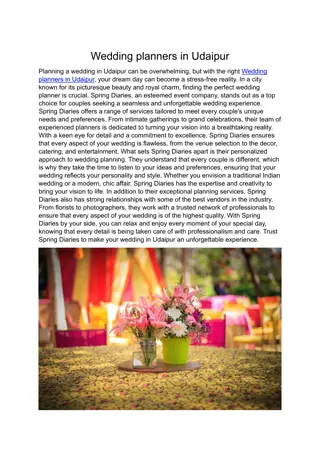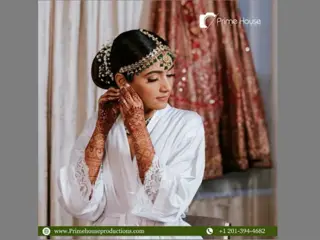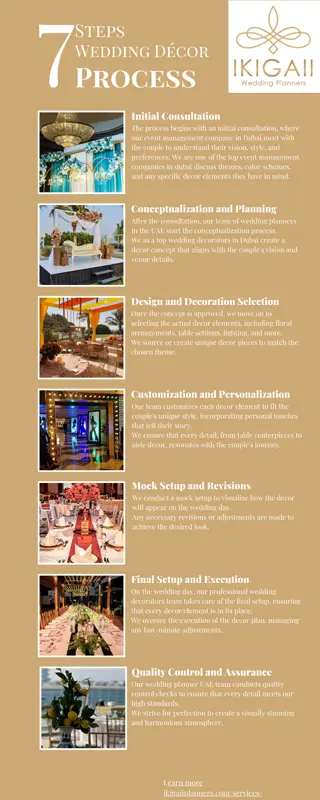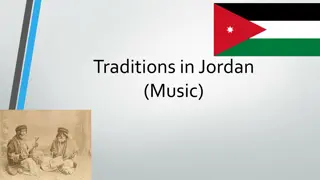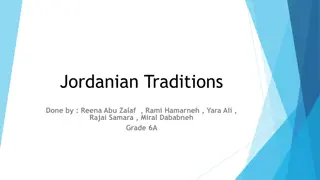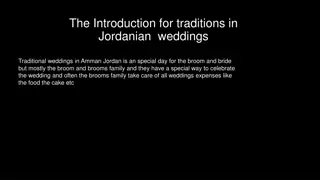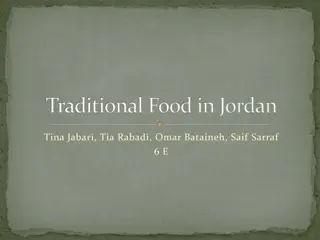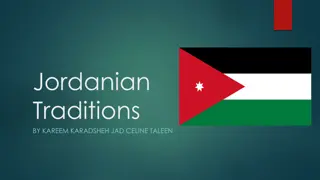Jordanian Wedding Traditions
Jordanian weddings are rich in cultural traditions, starting with the groom asking the bride's parents for permission (Tulba) followed by visiting the bride's home (Jaha) with extended family. A formal engagement typically precedes the celebratory Henna Night and the festive Zaffa, where professional musicians and dancers welcome the newlyweds. These customs highlight the significance of family and community in Jordanian wedding celebrations.
Download Presentation

Please find below an Image/Link to download the presentation.
The content on the website is provided AS IS for your information and personal use only. It may not be sold, licensed, or shared on other websites without obtaining consent from the author.If you encounter any issues during the download, it is possible that the publisher has removed the file from their server.
You are allowed to download the files provided on this website for personal or commercial use, subject to the condition that they are used lawfully. All files are the property of their respective owners.
The content on the website is provided AS IS for your information and personal use only. It may not be sold, licensed, or shared on other websites without obtaining consent from the author.
E N D
Presentation Transcript
Traditions in Jordanian weddings
Asking Parents Permission (Tulba) The tulba is the event in which the groom officially asks the bride s parents for their permission to marry their daughter.
Visiting the Brides Home (Jaha) Following the tulba, there comes a second round of visiting the bride s home to seek permission. This time with the extended family (and sometimes close friends).
Engagement In Jordanian culture, it s still very customary to have a formal engagement. The engagement follows the jaha and usually takes place in the form of a small party.
Henna Night Henna night is a gathering that usually takes place at the bride s home the night before the wedding. During this event, women from both the bride s and groom s families gather to celebrate.
Zaffa Zaffa is a wedding parade with drums and bagpipes carried out by professional musicians. There will be dabke dancers or belly dancers to welcome the newly weds into the venue.
Links Zaffa https://www.youtube.com/watch?v=Dj2 X1b-ZU7A Henna https://www.youtube.com/watch?v=bH WLBWBiwAg




